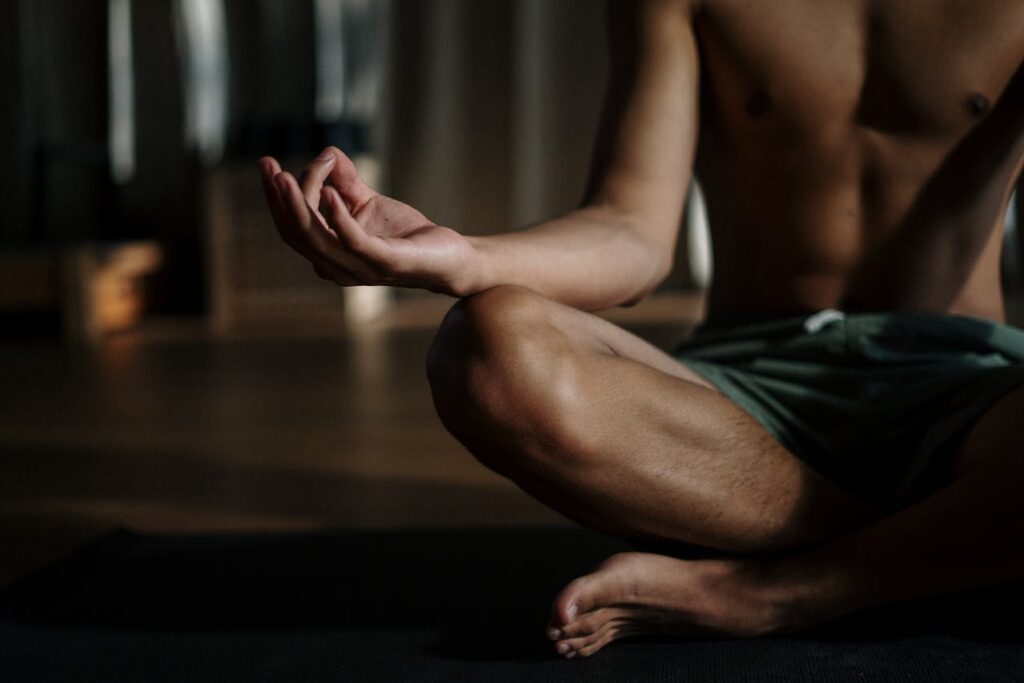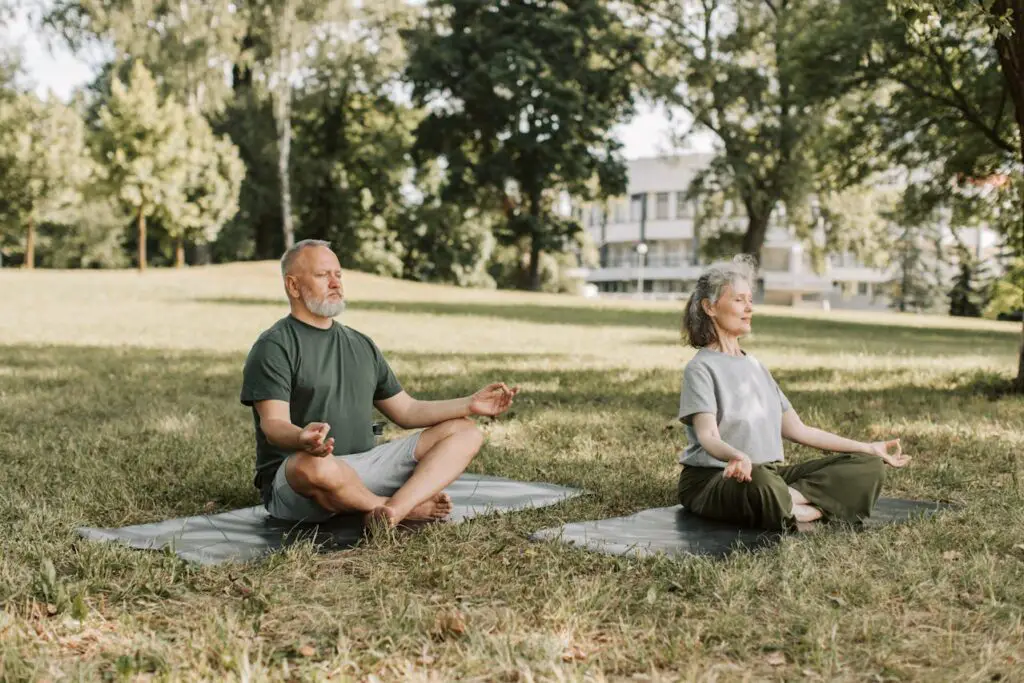Ever feel like life’s pulling you in a million directions at once? Grounding can be the anchor you need to stay focused and balanced. Whether you’re aiming for personal development or professional success, grounding techniques help you reconnect with your core values and goals.
I’ve found that grounding isn’t just a buzzword; it’s a powerful tool for navigating life’s chaos. By centering yourself, you can make more mindful decisions, reduce stress, and enhance your overall well-being. Let’s dive into how grounding can transform both your personal and professional life.
Understanding Grounding
Grounding serves as a foundational practice for aligning thoughts, emotions, and actions. Rooted in mindfulness techniques, grounding helps anchor individuals in the present moment. For example, deep-breathing exercises and sensory awareness can instantly recalibrate focus.
In personal growth, grounding reconnects individuals with their intrinsic values. Performing daily routines with conscious presence and reflection on core values strengthens inner resilience. Journaling about daily experiences or engaging in physical activities like yoga can aid this process.
Professionally, grounding promotes clarity and effective decision-making. By reducing stress and enhancing focus, grounded individuals are better equipped to tackle challenges. Regularly setting aside time for meditation or creating a clutter-free workspace can markedly improve professional performance.
Grounding techniques vary but share common goals. Practices such as visualization, walking barefoot, or mindfulness meditation help cultivate stability and reduce anxiety. Each technique offers unique benefits tailored to individual preferences and needs.
Understanding and integrating grounding into daily routines can yield substantial personal and professional benefits. By staying anchored in the present, individuals enhance their overall well-being and decision-making capabilities.
The Benefits of Grounding in Personal Growth
Grounding offers numerous advantages for personal growth. By anchoring myself in the present, I can cultivate increased self-awareness, emotional stability, and enhanced well-being.
Increased Self-Awareness
I deepen my understanding of myself through grounding. This awareness allows me to recognize my strengths and weaknesses. For instance, daily journaling can help me reflect on my actions and thoughts. By doing so consistently, I uncover patterns and triggers, which helps me make informed decisions about my behavior.
Emotional Stability
Grounding techniques like deep-breathing exercises contribute to emotional stability. When stressful situations arise, these practices provide a way to calm my mind and control my responses. For example, incorporating sensory awareness can reduce anxiety by focusing my attention on the present moment. This practice helps me manage emotions effectively and respond to challenges with a clear mind.
Enhanced Well-Being
My overall well-being improves significantly through grounding. Regular practices like yoga and mindfulness meditation promote physical relaxation and mental clarity. For instance, yoga helps reduce tension in my body, while meditation fosters a peaceful mind. Engaging in these activities daily nurtures a balanced state, enhancing my overall quality of life.
The Importance of Grounding in Professional Growth
Grounding plays a crucial role in professional growth, providing stability and focus necessary for success.
Improved Focus and Productivity
Grounding improves focus and productivity by helping individuals remain present and attentive to tasks. Techniques like deep-breathing and sensory awareness eliminate distractions by promoting mindfulness. Practicing grounding daily can increase work output and efficiency, allowing professionals to complete tasks with greater accuracy and speed.
Enhanced Decision-Making
Grounding enhances decision-making capabilities by clarifying thoughts and minimizing stress. When grounded, individuals process information more clearly and make more informed choices. Techniques such as visualization and mindfulness meditation calm the mind, enabling better assessment of situations and identifying optimal solutions.
Better Interpersonal Relationships
Grounding fosters better interpersonal relationships in the workplace by improving emotional regulation and communication skills. Staying grounded during interactions helps maintain composure and express thoughts clearly. For example, deep-breathing exercises before meetings can reduce anxiety, while sensory awareness techniques enhance empathy and understanding, creating a collaborative and harmonious work environment.
Techniques for Grounding
Various techniques can effectively anchor individuals in the present moment, fostering both personal and professional growth. Here are some methods that enhance grounding by encouraging mindfulness, physical activity, and creativity.
Mindfulness Practices
Mindfulness practices help cultivate a heightened awareness of the present. Techniques such as deep-breathing exercises, which slow the heart rate and calm the nervous system, are simple yet powerful. For example, focusing on the breath for just five minutes can improve mental clarity. Sensory awareness, which involves consciously noting sights, sounds, smells, and other sensory inputs, can also anchor the mind. Meditation, practiced for even ten minutes daily, reduces stress and boosts emotional resilience.
Physical Activities
Physical activities channel energy and focus through movement. Practices like yoga and tai chi, which combine physical poses with mindful breathing, enhance grounding by fostering a mind-body connection. Regular exercise routines, whether jogging, walking, or dancing, release endorphins and improve mood. These activities not only promote physical health but also help maintain mental equilibrium, making it easier to handle professional and personal challenges.
Creative Outlets
Creative outlets provide an expressive way to ground oneself. Engaging in activities like drawing, painting, or writing can center the mind and offer an emotional release. Journaling, in particular, allows for introspection and increased self-awareness by letting thoughts flow freely onto paper. Music, whether playing an instrument or simply listening to a favorite playlist, can be meditative and grounding. Creative expression fosters mindfulness and emotional balance, contributing to overall well-being.
Using these techniques, individuals can enhance their grounding practice and, in turn, enrich their personal and professional lives.
Challenges and Solutions
Grounding in both personal and professional contexts presents unique challenges. Identifying these challenges and finding effective solutions ensures more balanced growth.
Overcoming Distractions
Distractions often pull focus away from essential tasks. I find that creating a distraction-free environment is crucial. Turning off notifications, designating specific work times, and setting up a dedicated workspace can significantly reduce interruptions. For instance, using apps like Forest or Freedom helps block distracting websites during focused periods. Mindfulness practices, such as deep-breathing exercises, also aid in refocusing the mind when distractions occur.
Managing Stress
Stress hinders both personal growth and professional success. Grounding techniques play a pivotal role in stress management. I rely on deep-breathing exercises and mindfulness meditation to reduce immediate stress. Physical activities like yoga and tai chi further alleviate stress by promoting a mind-body connection. Engaging in these activities regularly ensures a lower stress baseline, enhancing overall well-being.
Setting Boundaries
Establishing boundaries is essential for maintaining balance. To protect personal time and professional productivity, I set clear boundaries between work and personal life. This includes setting specific work hours, informing colleagues of my availability, and creating a clear demarcation between workspaces and relaxation areas. Techniques such as time-blocking and prioritizing tasks help maintain these boundaries effectively.
Conclusion
Grounding is more than just a practice; it’s a pathway to a balanced and fulfilling life. By integrating grounding techniques into daily routines, we can enhance our personal and professional growth. These practices help us stay connected to our core values, improve decision-making, and foster emotional stability.
Whether through deep-breathing exercises, mindfulness meditation, or creative outlets, grounding offers a tailored approach to meet individual needs. It’s about creating a harmonious balance that allows us to thrive in all aspects of life. So, let’s embrace grounding as a cornerstone of our journey toward growth and well-being.










0 Comments